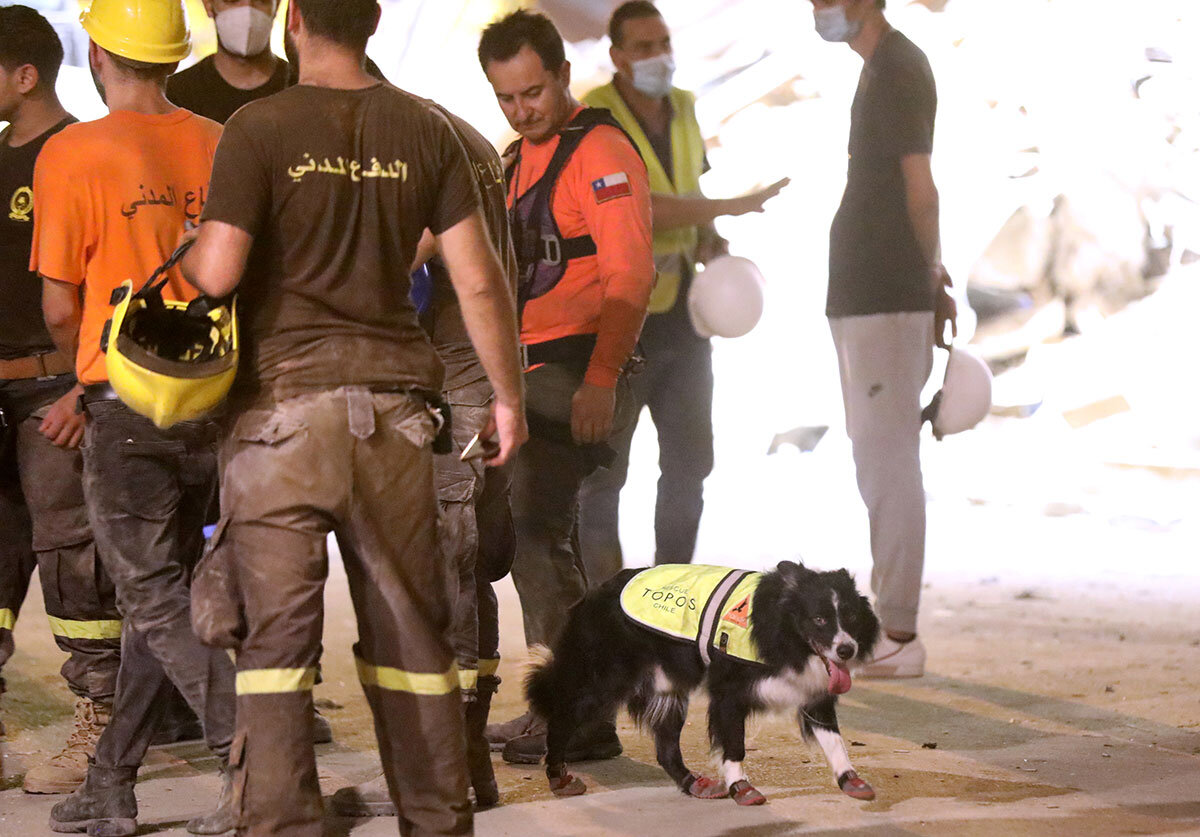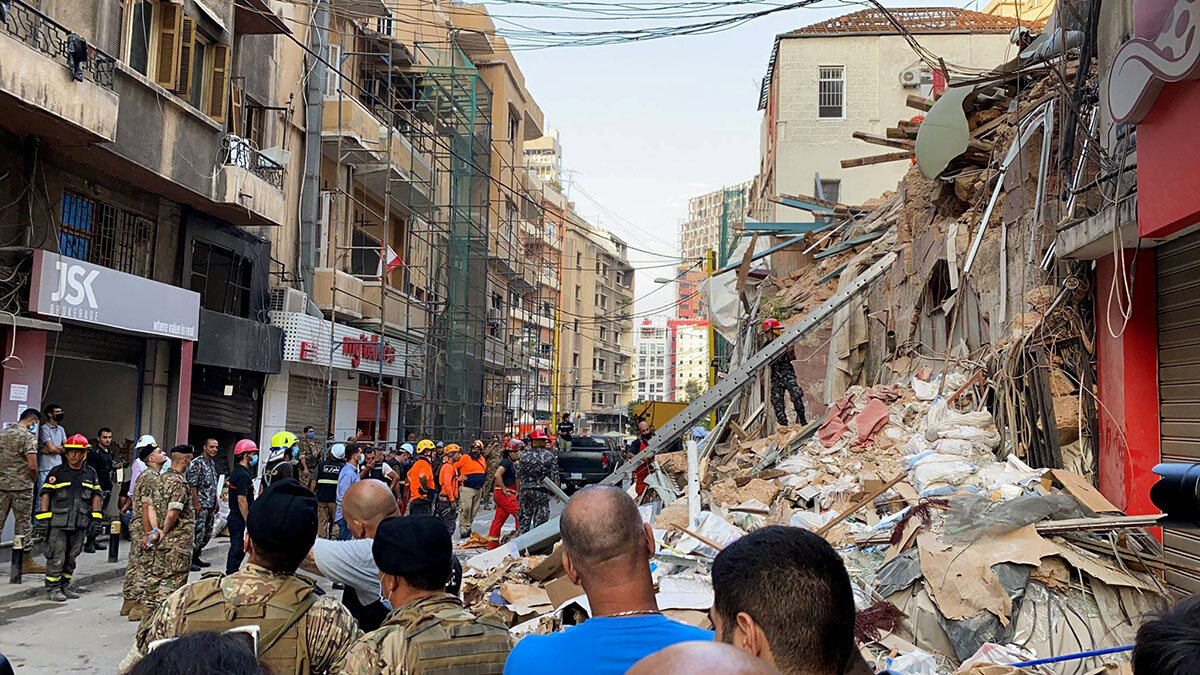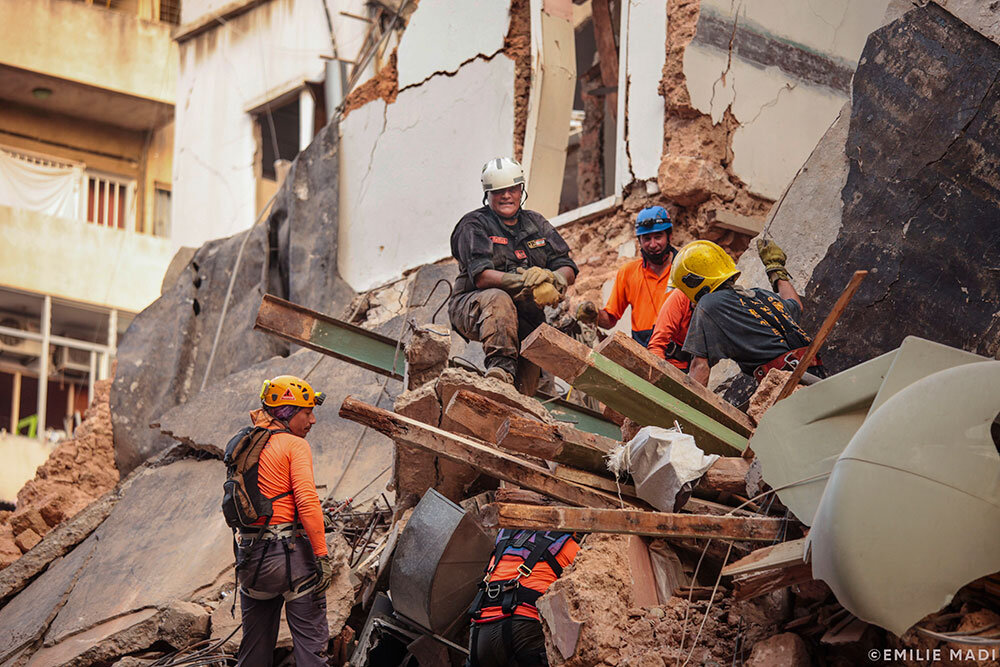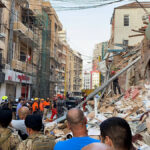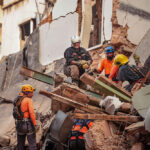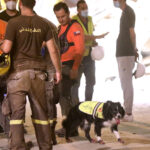Photos: Emilie Madi
Michel Tabet
A month after the explosion.
We are looking for reasons in the city to move forward, to give ourselves courage.
Chilean rescuers pass in front of a collapsed building.
Their dog detects a smell, just a scent.
The chief rescuer scans the rubble.
He senses a few heartbeats.
Almost nothing.
Almost everything.
The chief feels there is sufficient reason to search the rubble.
“Nobody is dead until he is found dead.”
The Chileans know something about it.
The street is blocked.
The operations begin.
They last for hours and days.
They keep the city in suspense
And make us hope again.
For a few heartbeats, someone, in the streets of
Beirut, stopped and decided to dig.
Never before seen.
The Chileans hold up a paradoxical mirror to us: they show us the worst of ourselves (the carelessness of our institutions and the contempt for the living that characterizes our addiction to the tragic) and the path to follow: respect for life until its last breath.
That is why, in the space of a few days, they have become the saviors of our souls.
While digging in the depths of the gutted building, they may not have found a survivor, but they brought us out of the limbo we were in.
And deep down, it didn’t matter if there was someone or no one in the smoking ruins of the building.
It doesn’t matter whether or not they find and save a buried heart (even if we all wish for a happy ending).
It’s the gesture that counts.
For the first time in our history we have the feeling that someone is taking care of us, of our rubble, our corpses, our pain and our wounds. Usually we clear and fill, evacuate and move on.
The concern and respect that the gestures of the Chilean rescuers reveal are revolutionary for this: they place the possibility of life beyond any other consideration.
And I love these Chileans because they have crossed continents to get here.
Because they come from far, very far away,
by their own means.
I love them because they have a history as shattered as ours and the lesson they give us is not that of the experts and the powerful, but of those who, like us, learn life in tears and blood.
trans. from the French by Jordan Elgrably



